Inflation Is Cooling — But That’s Why Multifamily Real Estate Is Heating Up

Inflation Is Cooling — But That’s Why Multifamily Real Estate Is Heating Up
April 2025 brought some encouraging news for the U.S. economy: inflation continued its downward trend. The Consumer Price Index (CPI) increased by just 0.2% month-over-month, bringing the annual inflation rate to 2.3% — the lowest we’ve seen since early 2021.
But beneath the surface, not all categories are easing at the same pace.
In particular, shelter inflation remains sticky, highlighting the continued strength — and necessity — of multifamily housing as both a consumer essential and a resilient investment class.
April 2025 CPI Breakdown: Where Inflation Is and Isn’t
Here’s what the data tells us:
Category MoM % Change YoY % Change
Shelter (housing and rent) accounts for over one-third of the total CPI basket. Despite the broader cooling of food and energy, Housing costs are still rising at double the overall inflation rate.
Why Multifamily Real Estate Is Poised for Growth
As inflation moderates and the Fed begins signaling potential rate cuts later in the year, real assets especially multifamily housing are becoming increasingly attractive. Here's why:
1. Shelter Inflation = Built-In Pricing Power
Rents are one of the few areas where owners can reprice, typically annually or sooner allowing multifamily assets to adapt more quickly to inflationary changes. Even during times of price moderation, high shelter demand keeps rental income stable and growing, unlike many fixed-income or long-duration asset classes.
2. Secular Tailwinds and Demographic Support
· Homeownership affordability is at historic lows due to high mortgage rates and limited inventory.
· Millennials and Gen Z renters are delaying home purchases.
· The U.S. has an estimated housing shortage of over 4 million units, per Freddie Mac.
These factors continue to push demand into the rental market, especially for well-located, well managed multifamily properties.
3. Attractive Tax and Leverage Structures
Multifamily offers powerful incentives:
· Depreciation and bonus depreciation reduce taxable income.
· Cost segregation can accelerate deductions.
· Financing structures allow for leverage with non-recourse debt and tax-efficient distributions.
These benefits often translate to higher after-tax yields than many traditional equity or bond investments.
4. Opportunity in Pricing Dislocation
Many sellers are still pricing their deals based on 2021-2022 cap rate expectations, while buyers demand pricing that reflects current market rates.
This has created a pricing gap — and opportunity:
· Deals are beginning to trade at discounts, especially from distressed sellers or capital-constrained groups.
· As rates fall, cap rate compression will likely follow, giving today’s investors upside in asset value (and possibly income).
Invest Where Demand Lives
Today’s economic climate is defined by transition — inflation is easing, interest rate cuts are likely ahead, and capital is still sitting on the sidelines.
That’s why we believe multifamily real estate represents a uniquely favorable risk-adjusted opportunity right now:
· Cash flow protection through inflation-indexed rents
· Resilient demand due to secular housing dynamics
· Potential for appreciation as cap rates compress
· Tax-advantaged income compared to traditional investments
If you're an investor looking to hedge risk while positioning for long-term growth, this could be your moment to look closely at multifamily.
At LSCRE, we specialize in institutional-quality multifamily deals in high-growth Texas markets, backed by in-house operations and over $700M in acquisitions
Want to learn more?
Let’s connect. We will be happy to share our current deal pipeline, walk through our investment strategy, or help you understand how multifamily can fit into your portfolio.
